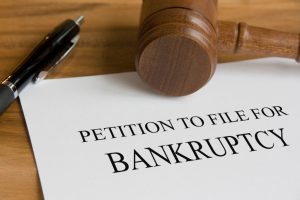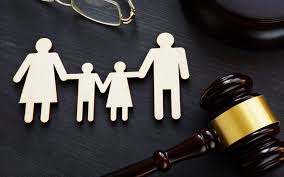How a Chapter 13 Bankruptcy Attorney Can Help You Eliminate Unsecured DebtHow a Chapter 13 Bankruptcy Attorney Can Help You Eliminate Unsecured Debt

If you are struggling with debt in Phoenix Arizona, you may be able to file for bankruptcy protection under Chapter 13 of the federal Bankruptcy Code. This is a debt-relief option that gives you the chance to get back on your feet without liquidating assets, and it’s also known as a “wage earner’s plan.”
The best Chapter 13 Bankruptcy Attorney in Phoenix will help you file this form of bankruptcy and devise a repayment plan that works for your situation. The lawyer will examine your income, expenses and debt to find the best way to eliminate the most of your debt and save you money.
This is a complex process and there are several steps you will need to take. The first step is to gather all of the information you have about your finances, including your debts, monthly expenses and property.
After you have this information, your lawyer will help you file all of the necessary paperwork. This includes filing a Chapter 13 Bankruptcy Petition, Schedules of Assets and Liabilities, Creditor Statements, Credit Counseling Certificate, and a Chapter 13 Plan.
A Chapter 13 plan is a court-supervised payment plan to satisfy all of your creditors under a bankruptcy filing. It can last between three to five years, and the trustee will pay a set amount every month to each of your creditors that have been included in the plan.
Many debtors are able to keep their homes through the use of this type of bankruptcy. It can be used to stop foreclosures, halt interest from accruing on tax debt and restructure credit card and car payments.
However, it is important to note that not all debts can be discharged in this bankruptcy, such as recent taxes and student loans. You should discuss your options with a qualified Tucson bankruptcy attorney to determine which type of bankruptcy will be most beneficial for you and your family.
The best Chapter 13 Bankruptcy Lawyer in Phoenix will be able to optimize your plan so that it provides your creditors with ample funds while giving you the flexibility to live your life as usual.
For example, if you are behind on mortgage payments or have car loan arrears, your Chapter 13 attorney will be able to come up with a plan that catches up on your debts and allows you to stay in your home. You’ll also be able to pay off some of your non-dischargeable unsecured debts through the plan, so that you can get a fresh start on your credit.
Your Dodge and Vega bankruptcy attorney will also be able to help you develop a repayment plan that satisfies all of your obligations while allowing you to retain as much of your property as possible. Your lender can usually approve this type of payment plan, as long as your income is above the state’s median.
This type of bankruptcy is not right for everyone, and there are a few requirements that you must meet before you can file. These include a regular income, enough equity to retain your property and a means test that measures your ability to repay your debt.
 In most cases, separation and divorce is amicable. This means that both parties have accepted the decision and agreement made by both themselves and have agreed to move on with their lives. However, if children are involved in the divorce proceedings, it is best to seek professional legal assistance or an experienced family lawyer to ensure that child custody and alimony will be settled properly and will not be subjected to manipulation by either party to get their way.
In most cases, separation and divorce is amicable. This means that both parties have accepted the decision and agreement made by both themselves and have agreed to move on with their lives. However, if children are involved in the divorce proceedings, it is best to seek professional legal assistance or an experienced family lawyer to ensure that child custody and alimony will be settled properly and will not be subjected to manipulation by either party to get their way.